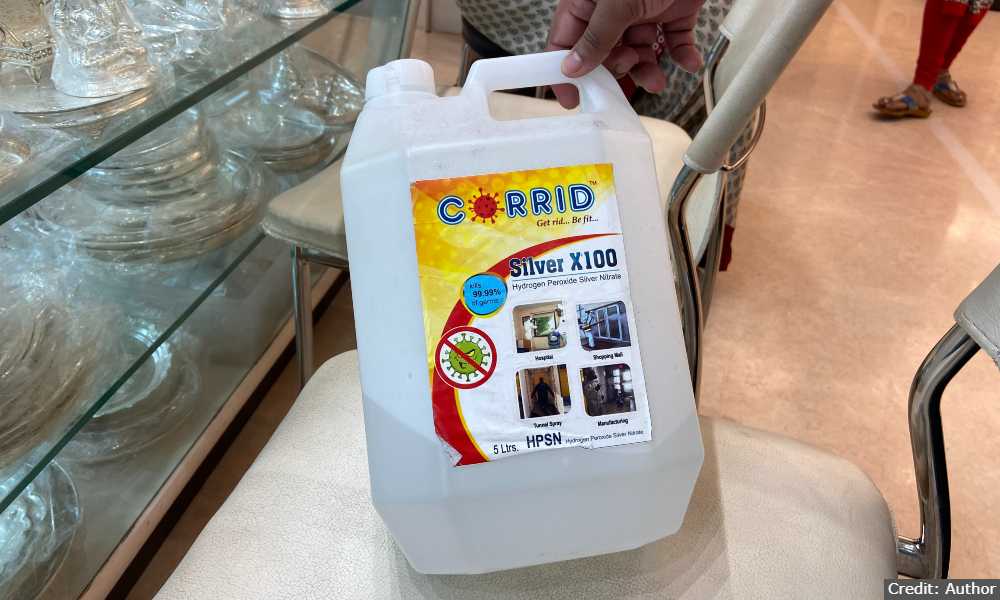Experts say that these equipments create a false sense of hope to mitigate the threat of the virus. They are not meant for human skin but only for inanimate objects.
Bengaluru: If you want to enter the Beggars Colony, Hegganahalli, you’ll have to go through a tunnel that will drench you in a mixture of water and chemicals.
The security at the Beggars Colony said that to enter their premises, it was mandatory for outsiders to pass through the tunnel. . They said that the tunnel is to ensure that the outsiders are sanitized. When one steps into the rectangular-shaped tunnel, they are sprayed with disinfectants from all the four corners
Dr. Govind S. Mittal, a dermatologist said that Department of Family and Health Welfare Services, Karnataka has issued no advisories or standard operating procedures (SOPs) on the usage of these disinfection tunnelson humans. “These tunnels are banned,” he added. Dr. Mittal emphasized that people could develop allergies because of the same.
According to him, these equipments create a false sense of hope among people who might think they are no longer exposed to the threat of the virus. The most practical solution he said is to wear masks, maintain distancing, and washing one’s hands properly.
The Food and Drug Administration (FDA) strictly prohibits the usage of surface disinfectants on human skin. It states that these disinfectants may cause skin or eye irritation. These sprays are intended to be used on hard non-porous objects and not on humans or animals.
Further, the Centre for Disease Control and Prevention (CDC) in its guidelines ‘Reopening Guidance for Cleaning and Disinfecting Public Spaces, Workplaces, Businesses, Schools, and Homes’ states that one should not eat, drink, breathe or inject disinfectants into their body. Neither should they directly apply them to their skin as they can cause serious harm.
A jewelry shop in Jayanagar 4th block also sprays such similar disinfectants on entry of their customers. Their manager, Mr. Kaverappa said, “We sanitize the customers by spraying hydrogen peroxide on them.” Hydrogen peroxide is commonly used as bleach. It may cause skin irritation and burns if used at too high of a concentration.
A study published by the Department of Microbiology, Post Graduate Institute of Medical Education and Research (PGIMER), Chandigarh states that these tunnels spray a mist of sodium hypochlorite solution. These tunnels are equipped with detectors that activate the disinfectant when a person steps on it.
Even if there’s a chance these disinfection tunnels do sanitize the contaminated surfaces (our clothes), an asymptomatic person would still remain at risk since the virus at the respiratory tracts are still viable — contributing to a fall sense of security.
Dr. Subhrajyoti Bhowmick, Clinical Director, Research and Academics, Peerless Hospital, Kolkata said, “There is no evidence; these tunnels don’t have any role in ending the virus.”
The time period when one walks inside a disinfection tunnel is too short to sanitize oneself, according to him. “We should bring about population-level behavioral changes rather than infrastructural changes,” he said. We have been too quick to set up measures to fight the virus. There are no guidelines or evidence that can support the efficacy of these disinfection tunnels, according to the study by PGIMER.




